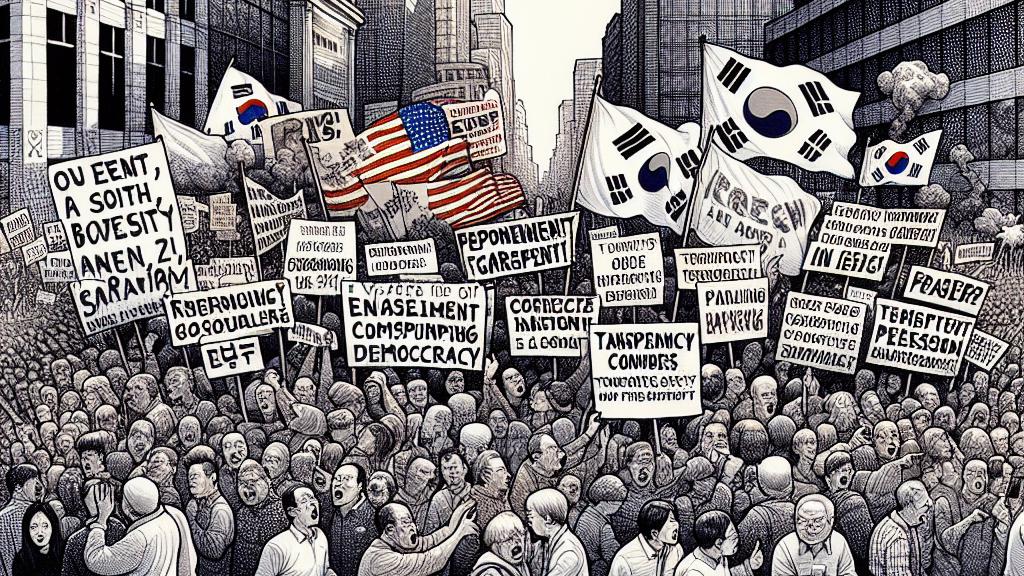Protests Erupt in Seoul Over President's Impeachment
Overview
- Seoul's streets are alive with protests, reflecting a nation starkly divided over the impeachment of President Yoon Suk Yeol.
- Supporters claim that Yoon's presidency is fundamental to national security amid concerns about North Korea.
- Opponents fervently call for Yoon's arrest, citing his actions as a betrayal of democracy.

A City in Uproar
In the heart of Seoul, a powerful wave of protests has erupted, capturing the attention of the nation and the world. Thousands have poured onto the streets, driven by a volatile mix of anger, hope, and fear, following the surreal attempt to arrest suspended President Yoon Suk Yeol. On one side, passionate supporters gather at the presidential residence, waving a flurry of South Korean and American flags, chanting slogans that underscore their belief that Yoon’s leadership is critical to maintaining stability against potential threats from North Korea. For instance, a supporter named Kim Chul-hong passionately declared, 'Without Yoon, we risk our national security!' In stark contrast, another group of citizens passionately counters this narrative, demanding accountability and swift action against Yoon, whom they accuse of threatening democracy itself. The scene offers a glaring reflection of a society at war with itself, as each group believes they are fighting for the very soul of their nation.
The Polarizing Martial Law Declaration
President Yoon’s recent declaration of martial law was nothing short of historic, and not in a good way. This was the first such move since the dark days of military rule in the 1980s, which left many citizens chillingly uneasy. Initially framed as a necessary step to curb violence and ensure national security, critics quickly dismantled this rationale, arguing that it was instead a blatant attempt to maintain power amid spiraling political tensions. The martial law, which was short-lived, drew such an outrage that it had to be lifted almost immediately. It revealed a blatant disregard for the democratic principles South Korea has fought hard to uphold. One protestor aptly noted, 'We stood against tyranny before, and we will do it again!' This declaration has reignited fears of an authoritarian revival, with citizens questioning not just Yoon’s tactics but the future of their democracy.
Impeachment: A Defining Moment
With the Constitutional Court set to review the impeachment process against Yoon, the stakes have never been higher. If upheld, Yoon would make history as the first sitting South Korean president to be arrested, representing a crucial turning point for the nation. While many supporters view any attempts to arrest Yoon as politically driven attacks on democracy, opponents emphasize that his alleged crimes, including inciting insurrection and ignoring legal protocols, warrant serious consequences. To illustrate, past political leaders facing similar charges serve as reminders of the importance of accountability in governance. As the protests swell in number and intensity, the question remains: will South Korea emerge from this turmoil with a stronger, more resilient democracy, or will deepening divisions fracture the nation beyond repair? Each rally, each slogan chanted is a testament to the citizens’ desire for justice and the imperative to protect their hard-won rights.

Loading...